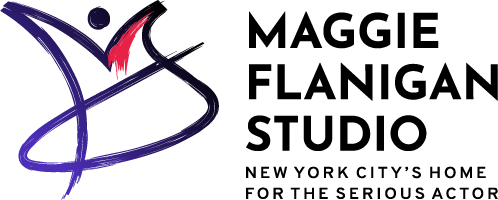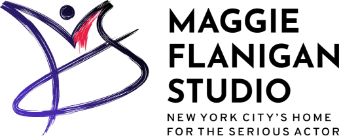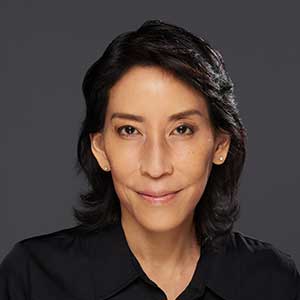Voice 1: Removing Habitual Patterns
All of us are born with a two to three octave speaking range that we utilize to communicate sound. As we age, we acquire habitual vocal patterns which are influenced by our family, our peers, and other outside social forces. Your socialized voice is perfectly serviceable for getting through life; it can order your coffee in the morning, hail you taxi cab, and sustain your day to day communication. But you want to be an actor. This career will require greater expressive demands. An actor cannot afford to have a voice limited by habit, conditioned by cultural norms, or diminished by fear.
Connecting to Your Voice
Kristin Linklater is considered one of the great voice teachers in modern history. Her seminal book Freeing the Natural Voice has been at the core of the most seriously respected actor training programs in the United States. Voice 1 is the first of four semesters that track the full curriculum of the Linklater progression of voice training. In this first semester, we begin to awaken and develop a personal and imagistic connection to your voice. You will be encouraged to work for clarity of thought, vocal freedom, and emotional connection in spoken communication. This is explored through the Linklater Voice Progression exercises, which leads from physical awareness (locating tension and releasing it), to the awareness of natural breathing, the experience of sound in the head and body (building resonance), and the release of tension in the channel of the throat, jaw, tongue, and soft palate.
Developing Vocal Freedom
This semester will also develop your resonating power in the chest, mouth, face, and skull. One of the main goals of the work is to identify and change habits that are impeding vocal freedom, so that you, the actor, can have access to the entire range of your speaking voice, possessing the strength and resonance you will need in both theater and film. You will also be challenged to bring vocal nuance, specificity, and clarity to every word and sound you make. The goal is to develop a voice that is in direct contact with emotional impulse, shaped by the intellect but not restricted by it. At the end of Voice 1, you will have a full physical and vocal warm-up to use in preparation for class, rehearsals, auditions, and performances.
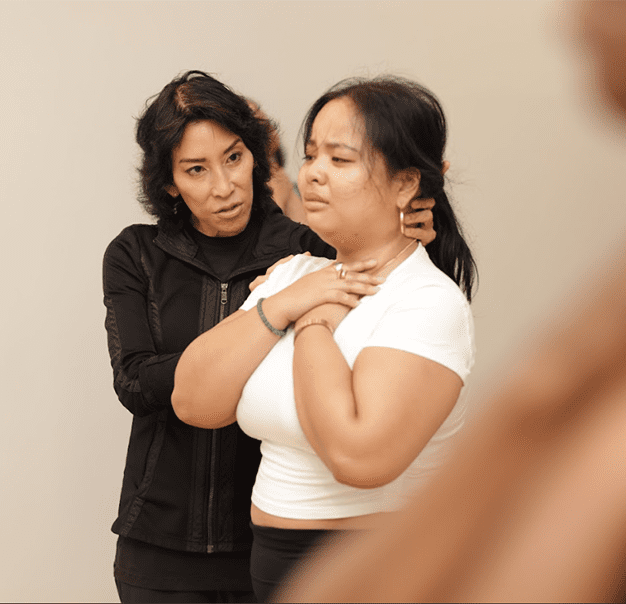
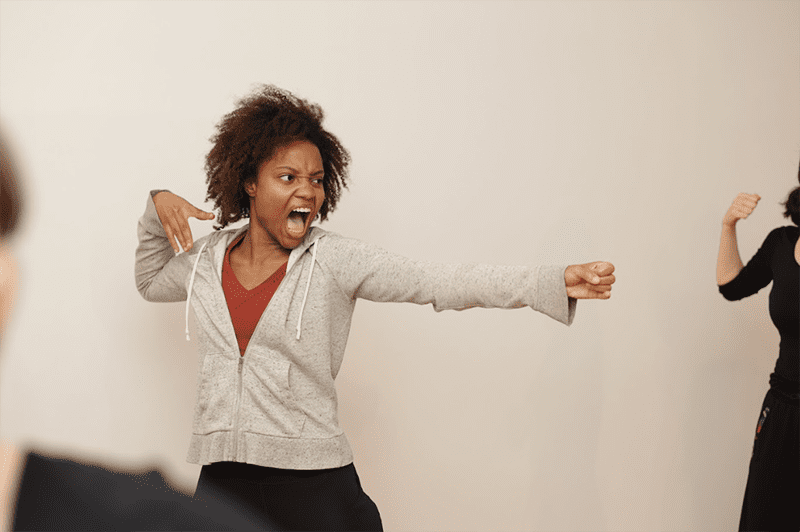
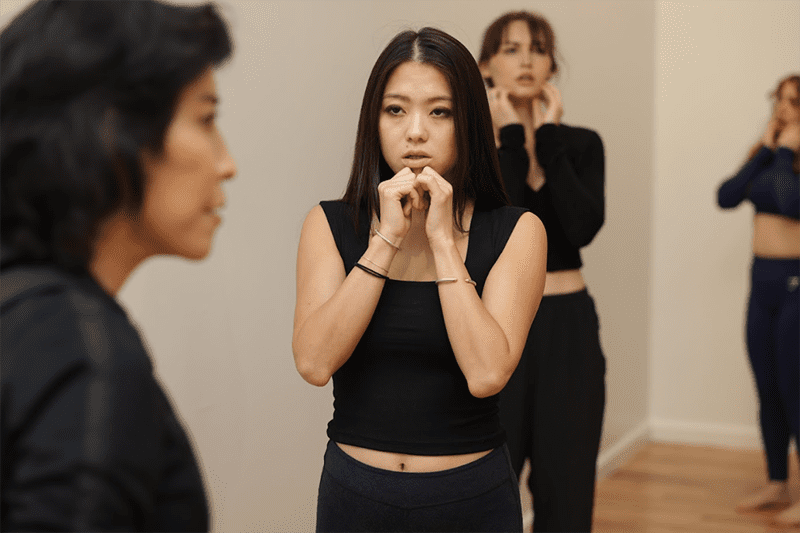
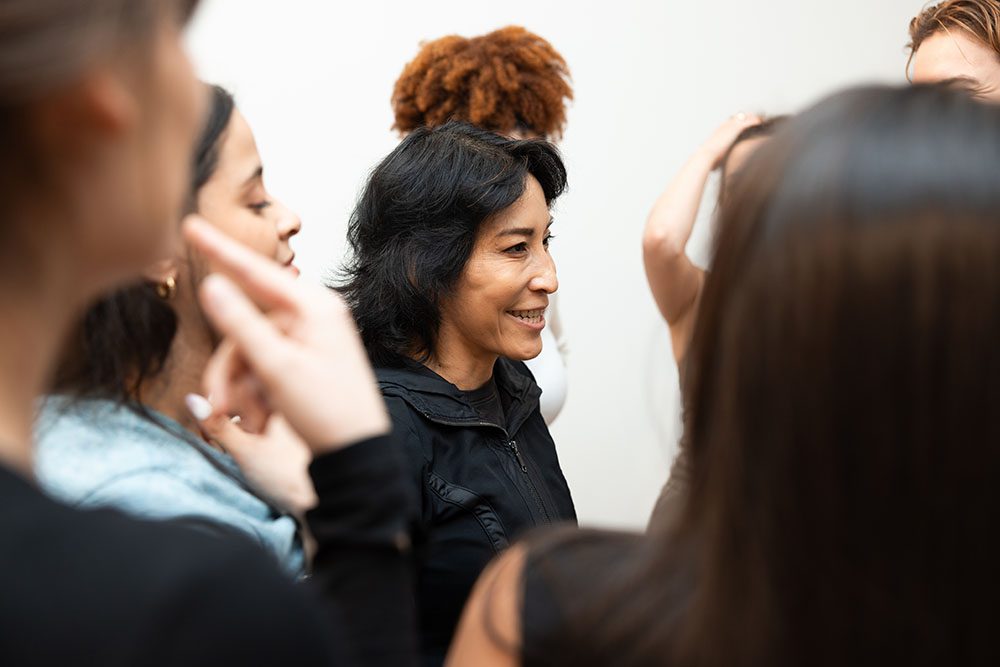
We believe that the full four semester progression of Voice, when taken concurrently with Acting 1 and Acting 2 provide the greatest opportunity for students to get that absolute most form what our conservatory actor training program can provide. You cannot work on your voice in an acting class. This kind of intense and intimate exploration must be done in outside classes. The growth found in Voice classes will have a substantial impact on the quality of work done in acting class.
Voice 1 is a 12-week course with 24 classes.
Voice 1 is a prerequisite for Voice 2.
MIDORI NAKAMURA
As an actor, Midori has worked in film, TV, on Broadway and Off-Broadway. Midori was made a Designated Linklater Teacher in 2019. In addition to the Maggie Flanigan Studio, she teaches voice for the David Geffen School of Drama at Yale University, The Linklater Center in New York, and NYU Tisch at The Lee Strasberg Theater & Film Institute.
Midori also coaches private clients in both acting and voice.
STUDENT TESTIMONIALS
“It was amazing how my work in Voice 1 aided me in acting class. The two went hand in hand. I was able to become aware all unnecessary habits and tension that would stifle my emotional life from being expressed through my voice.”

Dwaynne Walker-Dixon
“I found voice to be the most important obstacle in my time at Maggie Flanigan Studio. Once I enrolled in Voice and Speech, my work changed exponentially. It helped ground me. In my opinion, it’s essential you take this class!”

Scott Brieden
“The Voice I class, taught by Liz Eckert, brought a lot of attention to the parts of my body that I have been straining for most of my life. Liz is extremely helpful and pushes you to work your hardest.”

